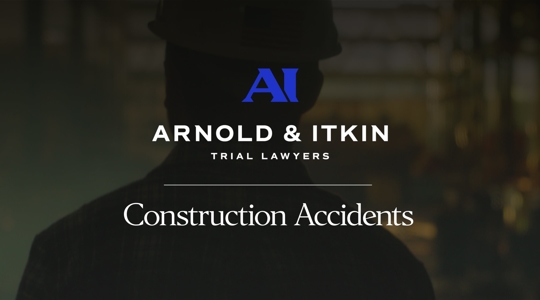Types of Forklift Accidents
The use of forklifts has helped reduce common orthopedic injuries that are caused by repetitive lifting and carrying activities. Unfortunately, improperly maintained or operated forklifts cause a large number of accidents in the workplace. According to OSHA estimates, approximately 680,400 forklift accidents take place each year. These injure approximately 9,000 employees, most of whom are pedestrian workers.
- Employees struck by falling load
- Employees struck by powered forklifts
- Forklift tip over
- Electrocutions
- Falls from forklift
Often, forklift accidents take place because of improper workplace design. Narrow aisles, blind spots, the presence of building columns, poor turning radius, intersection or door obstructions, and the condition of the loading dock can all contribute to an inefficient and unsafe workplace.
OSHA Forklift Safety Regulations & Hazards
Because forklifts are specialized vehicles, those who drive and operate forklifts must be specially certified. Many different certification centers around the nation comply with OSHA standards. Those who obtain certification for a forklift usually have to pass a knowledge-based test as well as field testing. There is a massive difference between operating a forklift and other small-scale work vehicles.
Since drivers are so accustomed to driving regular road vehicles, they have trouble becoming accustomed to the rear wheel maneuvering, among other unique forklift features. The other most notoriously dangerous component to lift trucks is their instability. These trucks carry loads that have the potential to fall and cause incredible damage. A falling load can not only drop off the truck but it can also cause the entire truck to tip over. For this reason, a driver should never attempt to make a turn with a raised load. These are just a few of the many regulations that have been implemented by such institutions as the Industrial Truck Standards Development Foundation and the OSHA.
Forklift Accidents Prevention
A forklift load may be too heavy, unstable, or may obstruct vision, creating conditions for an accident. The forklift truck itself may be in poor condition because of inadequate maintenance. Mechanical failures like malfunctioning brakes and clutch can create unsafe driving conditions for the forklift operator and can endanger other workers. Without adequate training in safe forklift operation, a forklift operator may adopt poor techniques such as dangerous turning and backing methods, improper parking, and failure to warn others about the presence of the forklift nearby. Miscommunication between operators and pedestrian workers, while a forklift is in operation, can also lead to collisions. For that reason, it is vital for employees to implement adequate safety training, effective communication, and routine maintenance.
- Any safety devices on the forklift must be sufficient and properly functioning
- Controls and displays must be well laid out and visible
- The forklift must include all extra tools and accessories that are necessary for safe operation
- Assignment of forklift operators should be done to ensure forklifts are handled only by trained operators
- Many accidents can be prevented if OSHA requirements related to forklift operation are followed
- While the forklift is in operation, the operator must look for signs of potential dangers (ex: sparks and flames)
- Any defects must be repaired before the forklift is put into operation
- The workplace should be designed to provide maximum space for forklifts to maneuver
- Employers must undertake preventive maintenance of the forklift per manufacturer recommendations
- The workplace must be kept free of obstructions that impact visibility or affect the safe operation of the forklift
Forklift Accident Lawyers Protecting Workers in Houston, Texas & Nationwide
As an industrial worker, you have rights under the Occupational Safety and Health Act of 1970. The reason the act was passed was to protect workers from industrial injury or from being killed in industrial accidents. The Act requires employers to fix common hazards and implement preventative regulations to avoid repeat accidents. This Act protects all workers who work in the private sector or for governments at any level.
Most workers are unaware they can notify OSHA about their workplace if they believe safety standards are being violated. In this situation, you would also be immune from being fired.
Those who employ forklift operators have as much responsibility for safety as operators do. Warehouse owners must always ensure the quality and safety of each machine before operation. They are responsible for repairing or replacing faulty machines. Likewise, employees are responsible for operating these machines according to federal and industry standards. Employers cannot hire forklift operators who have not completed a certification program. This is a faulty hiring practice, and any injuries that occur as a result will be the employer's fault.
Protect your rights and the lives of those you work with by pursuing a claim with top-rated forklift accident attorneys from Arnold & Itkin. Begin with a free case evaluation today
